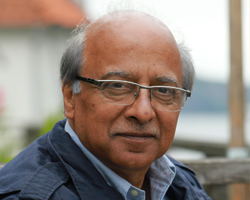Imtiaz Gul

The Muslim-majority Himalayan state of Kashmir – divided between India and Pakistan through a 720-km long Line of Control (LoC) – has dominated the regional media and political discourse since August 5 2019, when the BJP-led Indian government scrapped Article 370 and thus revoked the state’s special status and annexed it as the union territory along with Ladakh. Even before that, both countries have been trading mutual allegations of cross-border shelling and firing resulting in harm to civilian populations in areas under their respective administration.
Nonetheless, it has been a traumatic 365 days for the majority of Kashmiris on the Indian side. The All Parties Hurriyat Conference (APHC) led by Mirwaiz Umar Farooq has called the muscular move of August 5, 2019, as the most sordid chapter in the saga of Jammu & Kashmir. In a statement, the APHC said, “It’s been one year and lockdowns and imprisonments continue while one after another anti-J&K people and anti- majority community laws and ordinances are being thrust on the people as reminders of aggression. Even observance of religious occasions is barred.”
The APHC statement also said that the unilateral decision to change the demographic and physical character of J&K and undermine its disputed nature acknowledged by the world will not change the reality of the Kashmir issue nor the need to resolve it peacefully.

Prominent Kashmiri jurist Dr. Syed Nazir Gilani suggests to raise the issue of “reparation” against the Government of India for killing a generation and putting the habitat and people through an unprecedented indignity and violation of human rights. The Indian army has violated the seven restraints agreed at the time of its temporary admission (four restraints) and the UN discipline of three restraints placed on their number, behaviour and location during their temporary presence in Kashmir.
India went for the extreme measure and projected it as a move that would bring development and peace to Kashmir. Instead, this has caused widespread disruption to almost every aspect of the valley’s culture and politics.
Writing in the Nikkei Asian Review, Kashmiri journalist Safina Nabi says draconian laws such as the Public Safety Act, the Unlawful Activities (Prevention) Act, and tight internet curbs have resulted in real curbs on the most basic democratic rights such as freedom of expression and freedom of assembly. According to local human rights organization, the Jammu and Kashmir Coalition of Civil Society (JKCCS) there were 195 so-called cordon-and-search operations conducted in Jammu and Kashmir in 2019, resulting in the deaths of 165 people.
But in just the first six months of this year, the JKCCS has already documented 107 cordon and search operations resulting in 229 killings, in addition to 55 territory-wide internet shutdowns, and the destruction of 48 properties on the pretext that militants might be hiding inside.
“Instead of a return of full statehood, Kashmir’s leaders are demanding the restoration of Article 370. But with the local media gagged, and journalists often being called for questioning by the police, politicians can’t make their wishes known,” points out Safina Nabi to underscore a state of terror and siege that Kashmiris have been enduring during the last year.
Although most countries have deplored the human rights violations since the August 5 siege, not a single one has demanded a reversal of Kashmir’s pre-August 5 status. Not a single nation has objected to the revocation of Article 35-A, which will now directly impact the demography of Kashmir through the award of permanent residence and property rights to non-Kashmiris in the state.
Why should the (western) world object to the Indian high-handedness and disregard for UN resolutions if New Delhi is pleasing them by purchasing weapons from them worth billions of dollars?
In 2018, India signed a $2.6 billion deal with US companies for MH-60 helicopters, communication systems, weapons systems, eight anti-surface Hellfire Missiles, which can be used to hit ships, MK 54 Lightweight Torpedoes, 50 cannons and precision rocket systems.
India signed another multi-billion dollars contact with the Israel Weapons Industries (IWI) to procure 16,479 Negev 7.62×51 mm light machine guns (gas-operated) for the Indian Armed Forces.
The US is also supplying India 22 predator Guardian drones for at least $ 2 billion.
Russia too is thick in business with India and is supplying it the S-400 defence systems for approximately $5.4 billion in addition to another multi-billion deal for R-27 air-to-air missiles to be equipped on the Su-30MKI combat aircraft.
India also contracted 13 MK45 Naval guns from the US for over one billion dollars.
As if the French didn’t want to be left behind, they are selling India the Rafale jets as part of a whopping $ 9.5 billion.
So, let us not be surprised over why the world has kept mum over the defacing of Kashmir by the Hindutva leaders. Kashmiris need to stay firm in their resolve for autonomy and self-determination. Most of the world is likely to watch on as a silent spectator.
The writer in Editor in Chief Matrix Mag.



